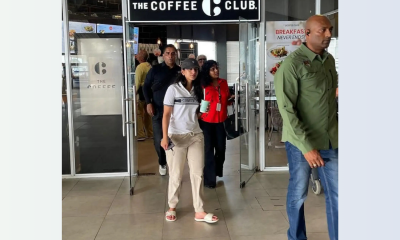Featured
With over 100 per cent growth, India becomes second biggest market in Maldives tourism

India has become the second largest source market for the Maldives tourism industry, overtaking traditional European markets with over 100 per cent growth during the first half of the year.
Growth in South Asia, which has become one of the fastest growing source markets, accelerated by an impressive 89.4 per cent in June, thanks to a 116 per cent increase in arrivals from India. A total of 15,875 tourists visited the Maldives in June from its closest neighbour compared to the 7,348 a year ago, representing a 10 per cent market share.
The visitor numbers from India in June is close to the total number of Indian holidaymakers that visited the Maldives during the whole of 2018. A total of 90,474 Indian tourists visited the Maldives in 2018 — up from fewer than 16,000 a decade ago.
The popularity of the Maldives as a holiday destination has been increasing in India thanks to a boost in air connectivity between the two nations. In addition to the flagship carriers of the two countries, several Indian budget carriers such as GoAir, Spice Jet and Indigo have launched direct connections between Male and important Indian cities such as New Delhi, Bangalore and Mumbai.
High profile trips of Bollywood celebrities that draw media attention have also helped boost the Maldives’ popularity amongst Indian holidaymakers. Most recently, superstar Shah Rukh Khan and actress Malaika Arora were in the Maldives.
Official figures show that total arrivals for the first six months of the year increased by 18.7 per cent to reach 862,589 compared to the 726,515 in the same period last year.
Tourist demographics remained largely unchanged in the January-June period, as Europe dominated with a marketshare of 50 per cent of the total tourist arrivals, followed by Asia Pacific with 40 per cent marketshare. Americas secured the third position with five per cent marketshare, whilst Middle East slid to the fourth with three per cent marketshare. African countries also contributed one per cent to the total tourist arrivals to the Maldives.
All the top 10 source markets posted positive growth in arrivals by the end of June.
China maintained its position as the top contributor to Maldives tourism with a marketshare of 16.3 per cent, as arrivals from China increased by 10.1 per cent during the January-June period to reach 140,265.
India overtook Italy, which is now placed third with a market share of 8.7 per cent, to claim the second spot, as the Maldives’ closest neighbour increased its marketshare to 9.5 per cent with a 99.9 per cent growth in tourist arrivals during the first six months of the year.
Germany and the UK, which slid to fourth and fifth position in May, maintained their positions with a marketshare of eight per cent and 7.5 per cent, respectively. Arrivals from Germany grew by 19.7 per cent to reach 69,237 during the first six months of the year, whilst visitor numbers from the UK saw an increase of 12.6 per cent to reach 64,792 during the period.
France, which saw its marketshare fall again to 4.3 per cent by the end of June, maintained its position as the seventh biggest source market, as Russia retained the sixth position with a marketshare of five per cent. Arrivals from Russia increased by 11.9 per cent to reach 42,949 by the end of June, whilst the number of French tourists visiting the Maldives in the same period grew by 23.1 per cent to reach 37,383.
The US and Japan also maintained their respective rankings as the eighth and ninth biggest contributor to Maldives tourism. Arrivals from the US increased by 34.5 per cent to reach 27,684 in the first six months of the year, whilst the number of Japanese tourists visiting the Maldives in the same period increased by 17.9 per cent to reach 22,624.
Meanwhile, both Sweden and Switzerland were pushed out of the list of the top 10 source markets, as Australia claimed the 10th position with a marketshare of 2.3 per cent by the end June. Arrivals from the emerging market grew by 14.3 per cent in the January-June period to reach 20,084.
Maldives welcomed a record 1.4 million tourists in 2018. It was a 6.8 per cent increase from the 1,389,542 tourists that chose to holiday in the Maldives in 2017.
Meanwhile, government has revised its forecast for the number of tourists visiting the island nation this year, increasing the estimate to a record 1.6 million from 1.5 million.
This positive growth in the tourism industry comes amidst concerns by private organisations representing industry stakeholders such as the Maldives Association of Travel Agents and Tour Operators (MATATO) over the lack of effort and budget to promote the Maldives as a destination.
These concerns come as the world-famous holiday destination struggles to match an increased bed capacity.
Over the past few years, dozens of uninhabited islands have been leased to local and foreign resort developers. Several international brands have entered into the market, increasing the number of resorts to more than 130. That number is set to increase as another 20 resorts are expected to open over the next two years.
Along with the new resort openings come the challenge of increasing demand from budget travellers who choose guesthouses over luxury resorts that the Maldives is known for. The guesthouse sector has rapidly expanded with over 500 guesthouses in operation today.
The previous government announced steps to maintain a structured growth in tourism, including a slowdown in leasing islands for resort development and increased marketing efforts in key markets such as China and the Middle East in order to reach an ambitious target of a record 1.5 million tourist arrivals this year.
Meanwhile, the new government has pledged to ramp up tourism promotion.
Reflecting the new government’s pledge, the state budget for 2019 includes MVR 104,200,000 (USD 6.7 million) for tourism promotion, up from MVR 34,733,333 (USD 2.2 million) this year and the previous year.
Cooking
Patina Maldives hosts Chef Shannon Bennett for exclusive April residency

From 1 to 5 April 2026, Patina Maldives, Fari Islands will host Shannon Bennett, one of Australia’s most recognised culinary figures and the creative force behind Belongil. The residency brings together a chef known for shaping dining as an emotional and reflective experience with a destination defined by perspective, creativity and purpose.
Bennett’s career extends beyond traditional notions of cooking. Through projects such as Vue de Monde and Belongil, he has explored dining as a medium for memory, connection and emotion, placing emphasis on experience rather than consumption. His approach centres on creating moments that remain with guests long after the meal has ended.
At Patina Maldives, the residency represents a convergence of shared values. Over five nights, guests are invited to take part in a limited series of dining experiences shaped by intention, curiosity and a sense of place. Rather than recreating Belongil in another setting, the programme evolves its philosophy, drawing inspiration from the natural rhythm and clarity of the Maldivian environment.
Commenting on the collaboration, Bennett said Belongil was conceived as more than a place to eat, but as a space for ideas, connection and lasting moments. He noted that Patina Maldives reflects a similar sense of purpose, adding that bringing his work into the island setting offered an opportunity to create experiences that feel grounded, honest and meaningful.
Patina Maldives continues to develop its identity by providing a platform for global creative voices to shape new conversations and perspectives. The residency with Bennett aligns with this approach, positioning cuisine as one element within a broader cultural and experiential narrative.
Tom Bray, Director of Lifestyle at Patina Maldives, said the resort exists to bring people closer to ideas, creativity and self-discovery. He added that welcoming Bennett reflects this philosophy, describing the residency as an experience designed to shift perspective rather than focus solely on gastronomy.
The residency is presented as an experience defined by intention rather than spectacle. Taking place over five nights on a single island, it brings together Patina Maldives and one of the culinary world’s most reflective minds for a programme shaped by presence, purpose and a sense of moment that cannot be replicated in the same way again.
Featured
You & Me Maldives unveils curated Premium All Inclusive programme
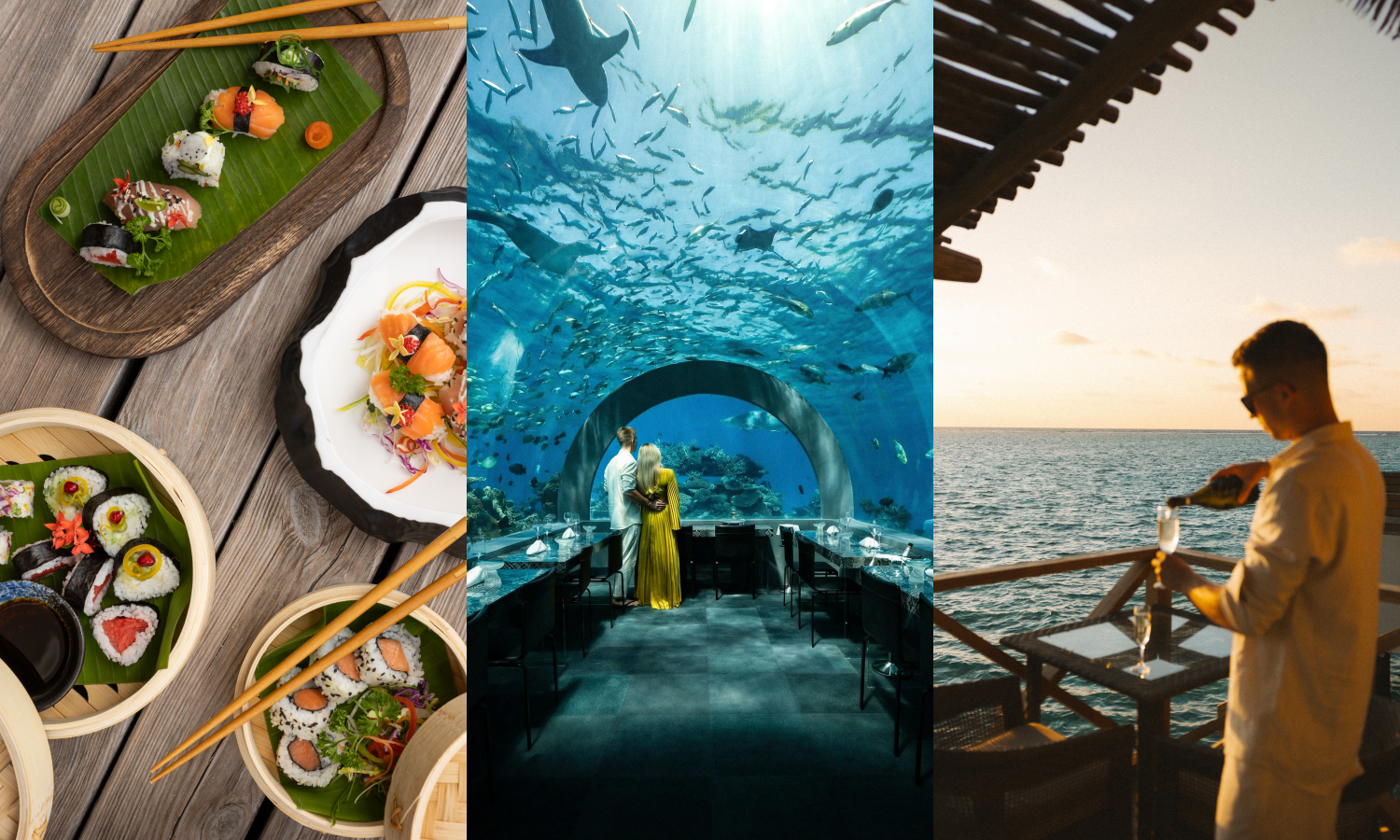
You & Me Maldives, the adults-only luxury retreat under The Cocoon Collection, has announced the launch of its new Premium All Inclusive experience, aimed at enhancing island stays through a more seamless and comprehensive offering in the Indian Ocean.
The Premium All Inclusive experience is designed to begin from the point of arrival. Guests receive complimentary access to The Cocoon Collection Lounge at the seaplane terminal at Velana International Airport, where services are provided to ensure a smooth transition before the journey to the resort.
On arrival at the island, guests are welcomed in their villas with a chilled bottle of sparkling wine and a selection of canapés. The Premium All Inclusive plan includes unlimited premium beverages by the glass, featuring a curated range of wines, signature cocktails, top-shelf spirits, international beers and non-alcoholic options. The in-villa minibar is replenished daily with soft drinks, international beers, red and white wines, as well as assorted snacks. For stays of five nights or more, guests also receive two bottles of premium liquor from a selected list, provided once during the stay.
The experience further includes a range of activities. Guests staying a minimum of three nights are offered one sunset cruise and one snorkelling excursion per stay, while those staying seven nights or more are entitled to a catamaran cruise. Unlimited use of snorkelling equipment and non-motorised water sports, including canoeing, kayaking and paddle boarding, is also included, subject to weather conditions.
Dining forms a central part of the Premium All Inclusive concept. Guests can enjoy three themed dining evenings, including a seafood barbecue under the stars featuring prawns, lobster and oysters. For stays of five nights or more, guests may also take part in a complimentary group cooking class, with a choice between ethnic or Italian cuisine, led by the resort’s culinary team.
Wellness offerings are also incorporated into the programme, with guests able to participate in up to three complimentary sunrise yoga sessions per stay, subject to availability.
The introduction of the Premium All Inclusive experience reflects the resort’s focus on personalised service and carefully curated stays. The offering is positioned to appeal to couples seeking relaxation, romance or activity-led experiences within an adults-only island setting.
Featured
Eid celebrations at SO/ Maldives blend Arabic tradition and Maldivian culture

SO/ Maldives is inviting global travellers this season to reimagine Eid not merely as a holiday, but as an immersive island escape. Located just 15 minutes by speedboat from Malé, the fashion-forward private island retreat sets the stage for a celebration where cultural heritage, contemporary luxury and tropical glamour come together.
At the centre of the festivities is an authentic culinary experience at Hadaba, the resort’s award-winning Arabic restaurant. Guests are offered Levantine flavours, artisanal mezze and traditional recipes presented with a modern approach, creating a setting for shared dining and celebration. As part of the resort’s dine-around concept, Hadaba can be included in a wider culinary journey across the island, allowing guests to experience Arabic cuisine alongside the resort’s other dining venues.
As evening falls, celebrations move to Lazuli Beach Club, where shisha rituals and Arabic-inspired refreshments are served in a beachfront setting. Traditional performances are complemented by Maldivian Boduberu drumming and fire dance displays, creating a cultural programme designed to appeal to international travellers seeking meaningful experiences.
Across the island, Eid is marked through a series of curated activities aimed at encouraging connection and creativity. Cultural workshops, including palm-leaf artistry and henna sessions, offer opportunities to explore heritage, while younger guests are engaged through themed crafts, interactive games and sweet treat decorating. The overall atmosphere remains celebratory while maintaining a relaxed pace that reflects the resort’s character.
Beyond the festive programme, the resort positions the long weekend as a fully immersive island retreat. Guests stay in beach and overwater villas featuring private pools and ocean views, with interiors inspired by high fashion. Time is spent between spa treatments, lagoon activities, beach club experiences and sunset dining, balancing celebration with seclusion.
To mark the season, the resort has introduced two limited-time stay offers. The One Night on Us offer provides savings of 33 per cent on stays of three nights or more, along with daily breakfast, complimentary transfers and spa privileges. The Soo Summer package offers preferential rates combined with spa experiences, curated dining inclusions and additional benefits for water villa stays.
Welcoming travellers from Europe, Asia, the Middle East and beyond, the resort presents Eid as a global celebration where Arabic traditions, Maldivian culture and contemporary design are brought together. This season, guests are invited to exchange routine for island surroundings and experience Eid through a redefined island perspective.
-
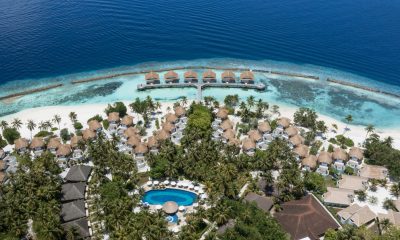
 Awards1 week ago
Awards1 week agoBandos Maldives earns Booking.com Traveller Review Award 2026
-

 Cooking1 week ago
Cooking1 week agoA spring of flavours: Nowruz dining series at JW Marriott Maldives Resort & Spa
-
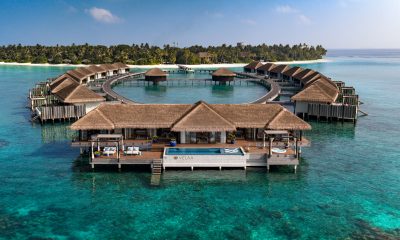
 News1 week ago
News1 week agoRefined overwater vision: Velaa Private Island’s upgraded Ocean Pool House
-
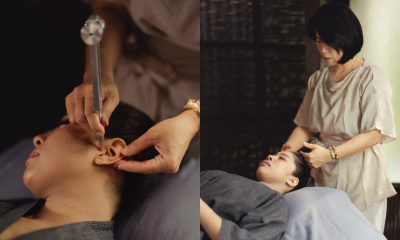
 Featured1 week ago
Featured1 week agoYoko Kawaguchi to lead holistic wellness residency at Vakkaru Maldives
-
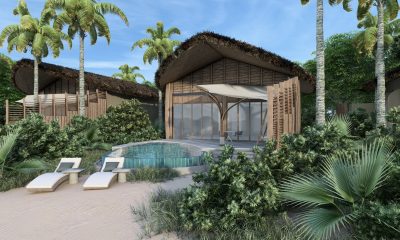
 News6 days ago
News6 days agoPulse Hotels & Resorts unveils Aura Maldives, a mindful luxury sanctuary
-
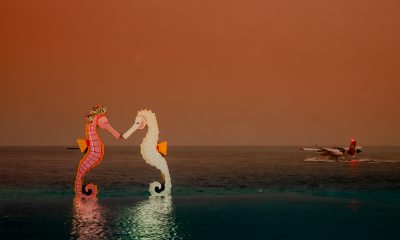
 Love1 week ago
Love1 week agoFushifaru Maldives combines romance and lunar new year traditions in guest programme
-
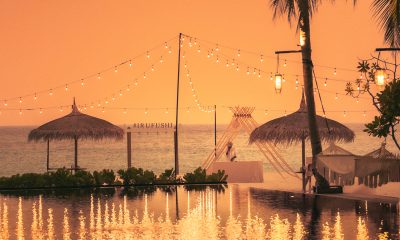
 News6 days ago
News6 days agoSun Siyam Iru Fushi sets new nenchmark with 24 Hour Premium All Inclusive Dine Around
-
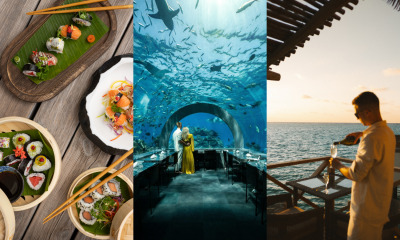
 Featured6 days ago
Featured6 days agoYou & Me Maldives unveils curated Premium All Inclusive programme



